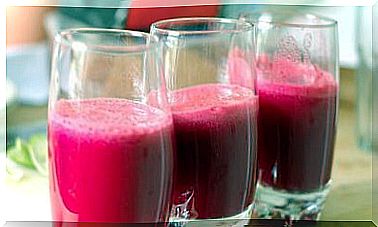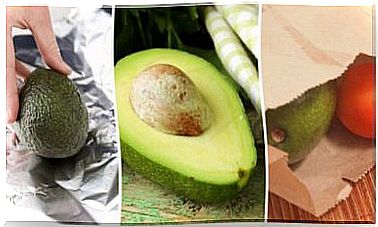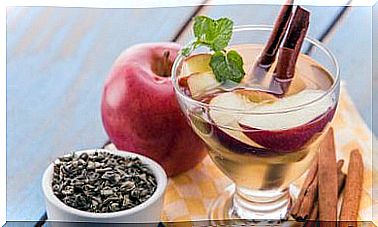Lecithin: Properties And Uses
Usually associated with its form of dietary supplement, lecithin is a generic term for a large group of fatty substances. It is used, among other things, as an ingredient in the cosmetics and food industry.
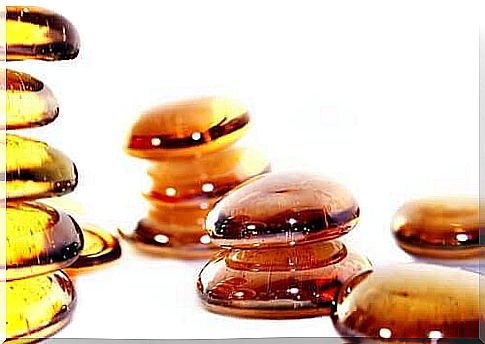
Lecithin is a type of fat found in certain body tissues and in certain plants. Chemically, it consists of phospholipids with phosphoric acid, choline and glycerol and one or two fatty acids.
Although its name brings us directly to think of food supplements, lecithin is a natural substance. It is indeed part of our tissues, the tissues of other animals and certain plants. It is a substance that we regularly generate as a result of normal digestive processes.
Furthermore, lecithin was first isolated in 1850 from egg yolk. Curiously, its name comes from the term egg in Greek: lekhitos . However, it can also be obtained from other resources, such as:
- Soy
- Rapeseed
- Cotton
- Sun-flower seeds
- Eggs
- Other animal fats
Main uses of lecithin
Lecithin has many uses in a wide variety of fields. It is used in the food and pharmaceutical industry to produce food and cosmetic products. It can also be taken as a supplement or appear in the list of ingredients of certain pastries and certain dishes.
Lecithin as a dietary supplement
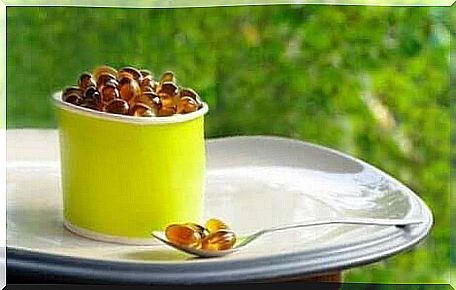
One of the most common specific uses of lecithin is as a dietary supplement. In this case, the most usual option is usually derived from soybeans. It can be in the form of granules or capsules of oil. It is also obtained from sunflower seeds or egg yolk.
In addition, lecithin has a nutritional composition as well as a set of characteristics which give it numerous advantages for the organism. We detail some of them below:
- One of the best known and most widely used as a dietary supplement is blood cholesterol control. Indeed, lecithin can lower LDL cholesterol levels and increase HDL ones.
- It is a digestive aid for people who suffer from ulcerative colitis. As it is rich in phosphatidylcholine, it nourishes the mucous layer of the intestine. Improvements in digestive processes were seen in these patients who often had sensitive intestinal lining
- During breastfeeding, lecithin can be used to prevent recurrent complications in the breast ducts. But that doesn’t treat them. This is what the Canadian Breastfeeding Foundation recommends. The milk would thus lose a little viscosity and would be less likely to block the ducts.
- Lecithin improves cognitive functions thanks to choline which plays an important role in brain development. It can help improve memory
- Benefits during menopause. This comes from a recent study published in the Nutrition Journal . It has shown a reduction in fatigue as well as an increase in energy in a group of women going through menopause. Nonetheless, more research is needed on this subject.
The use of lecithin as a food ingredient
Lecithins, regardless of their origin, have an emulsifying capacity. In other words, they are able to bind two liquids that do not mix well. For example, oil and water. Therefore, the processed food products have a smooth and even appearance.
It is common to find emulsifiers in the following products:
- Bakery products such as cakes, pastries or bread: to prevent them from drying out or becoming rancid too quickly. Lecithin also extends shelf life and gives them a softer, lighter texture.
- Ice creams: they melt more slowly and their texture is smoother
- Processed cheese: to allow the liquid part that is added, usually water, to mix well with the fat part
On the other hand, its use has been approved by the European Union as a food additive in accordance with regulation EC 1333/2008. In the list of ingredients, it appears under the number E322.
Benefits for the skin
The emulsifying property of lecithin is also used in the cosmetics industry. Thanks to this, it is often the ingredient of many creams. Indeed, it makes it possible to obtain a smooth and homogeneous texture.
On the other hand, lecithin is rich in antioxidants, phosphorus and vitamins E and A. It is therefore ideal for keeping the skin hydrated and supple. It has the ability to restore hydration to the skin and leave it smooth, reducing flakiness and promoting suppleness.
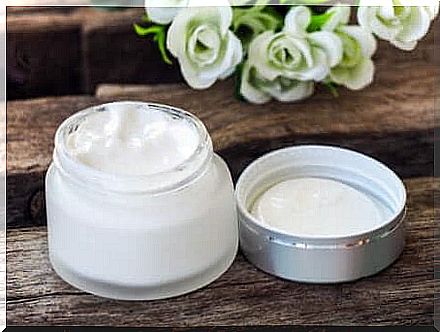
Risks and contraindications
Lecithin is considered a safe ingredient or additive by the Food an Drug Administration and the European Food Safety Agency.
The main risk of lecithins would therefore arise in people allergic to eggs or soy. If they need to take lecithin supplements, they should be well informed of its origin. In addition, it is necessary to read all labels of processed products, as lecithin is very often included.
In the form of supplements, it does not seem to present other risks or contraindications if the doses are respected. However, it is best to always consult a specialist before consuming any supplement. Especially for people recovering from illness or following medication.
Lecithin is not just a supplement for cholesterol
While this is certainly one of its best known properties, this supplement can help with many other functions and situations as well. Finally, it stands out for its high capacity to emulsify aqueous and oily textures, resulting in more homogeneous and smooth products. Thanks to all this, it very often appears on the list of food ingredients or on cosmetic products.


